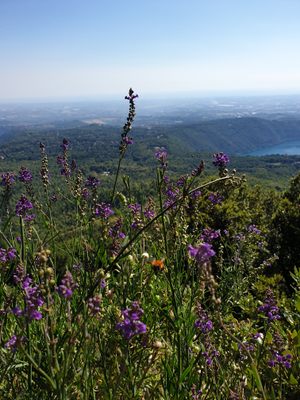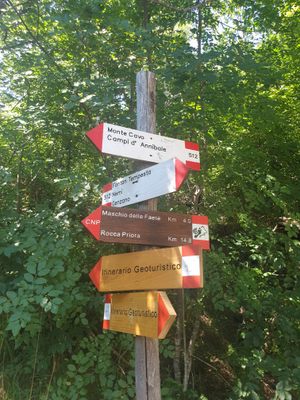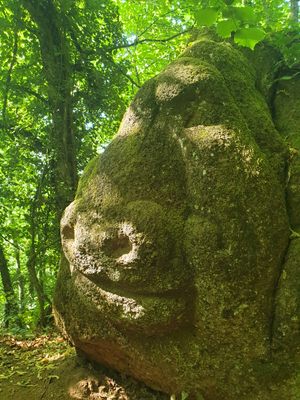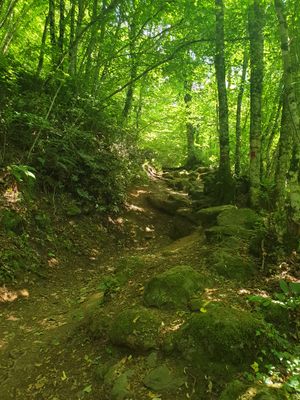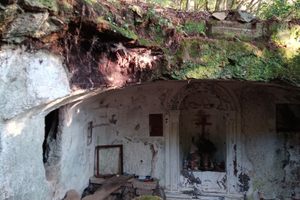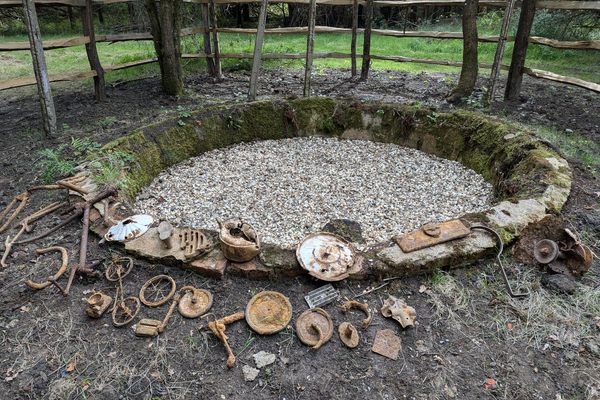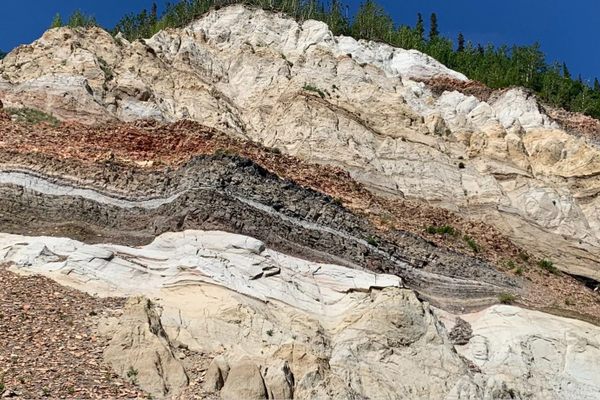About
The Via Sacra climbs the steep slopes and dense chestnut woods of Monte Cavo (3,084 feet, or 940 meters, above sea level) to the site where the ancient cult of luppiter Latiaris worshiped the god Jupiter. This spectacular hike is both an archaeological and spiritual journey and ranks among the most beautiful itineraries in the region.
The road, rebuilt with basalt stones under the reign of the fifth king of Rome, Tarquinius Priscus, is the natural continuation of a sacred path that led from the Temple of Diana Nemorensis, by the nearby Lake of Nemi, to the temple of the Latin League's major deity.
Once a year during the traditional Feriae Latinae delegates from the cities of the Latin League walked in a procession, carrying offerings for a great sacrifice that would be held in honor of the god (as recounted by Dionysius of Halicarnassus, a historian from the first century BC). In later times, as the Latin League's importance dwindled, Jupiter's temple in Rome overshadowed its Latin counterpart.
Nowadays, the temple has disappeared (although some of the foundation stones are still visible on the summit), replaced by a monastery and later, a restaurant and hotel, which is now abandoned. The view from the viewpoint below the peak (celebrated by Goethe in his Italian Journey) provides a breathtaking view over the volcanic lakes of Albano and Nemi and the great plain of the Campagna Romana (Roman countryside) beyond. Most of the road is still in good condition, complete with its original stone paving. Historical reenactment groups organize yearly events to celebrate the ancient Feriae Latinae.
Related Tags
Know Before You Go
The Via Sacra can be accessed by car from the old road to Monte Cavo (turn right on the way up to Rocca di Papa from the roundabout by the restaurant La Foresta) or from forest trails departing from La Foresta. A longer trail that's about 4.3 miles (7 kilometers) departs from Genzano and runs along the crater of Lake Nemi before climbing up to Monte Cavo. More information can be found on the website of the Parco Regionale dei Castelli Romani (in Italian).
Flavors of Italy: Roman Carbonara, Florentine Steak & Venetian Cocktails
Savor local cuisine across Rome, Florence & Venice.
Book NowPublished
August 20, 2019
Sources
- https://www.lavocedeicastelli.com/news/attualita/una-strada-unica-al-mondo-la-via-sacra-di-rocca-di-papa/
- http://www.lazioturismo.it/asp/scheda_archeo.asp?id=86
- http://www.osservatoriocollialbani.it/2017/10/15/passeggiando-per-la-via-sacra-rocca-di-papa/
- http://www.visitcastelliromani.it/it/rocca-di-papa/da-vedere/59-da-vedere-58/via-sacra
- http://www.lazioturismo.it/asp/scheda_archeo.asp?id=86
- http://www.osservatoriocollialbani.it/2017/10/15/passeggiando-per-la-via-sacra-rocca-di-papa/
- http://www.visitcastelliromani.it/it/rocca-di-papa/da-vedere/59-da-vedere-58/via-sacra

